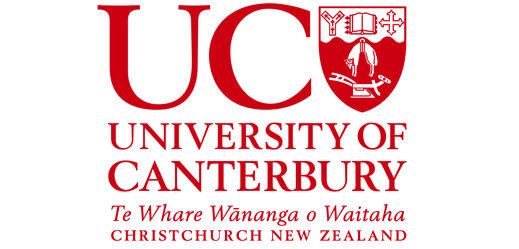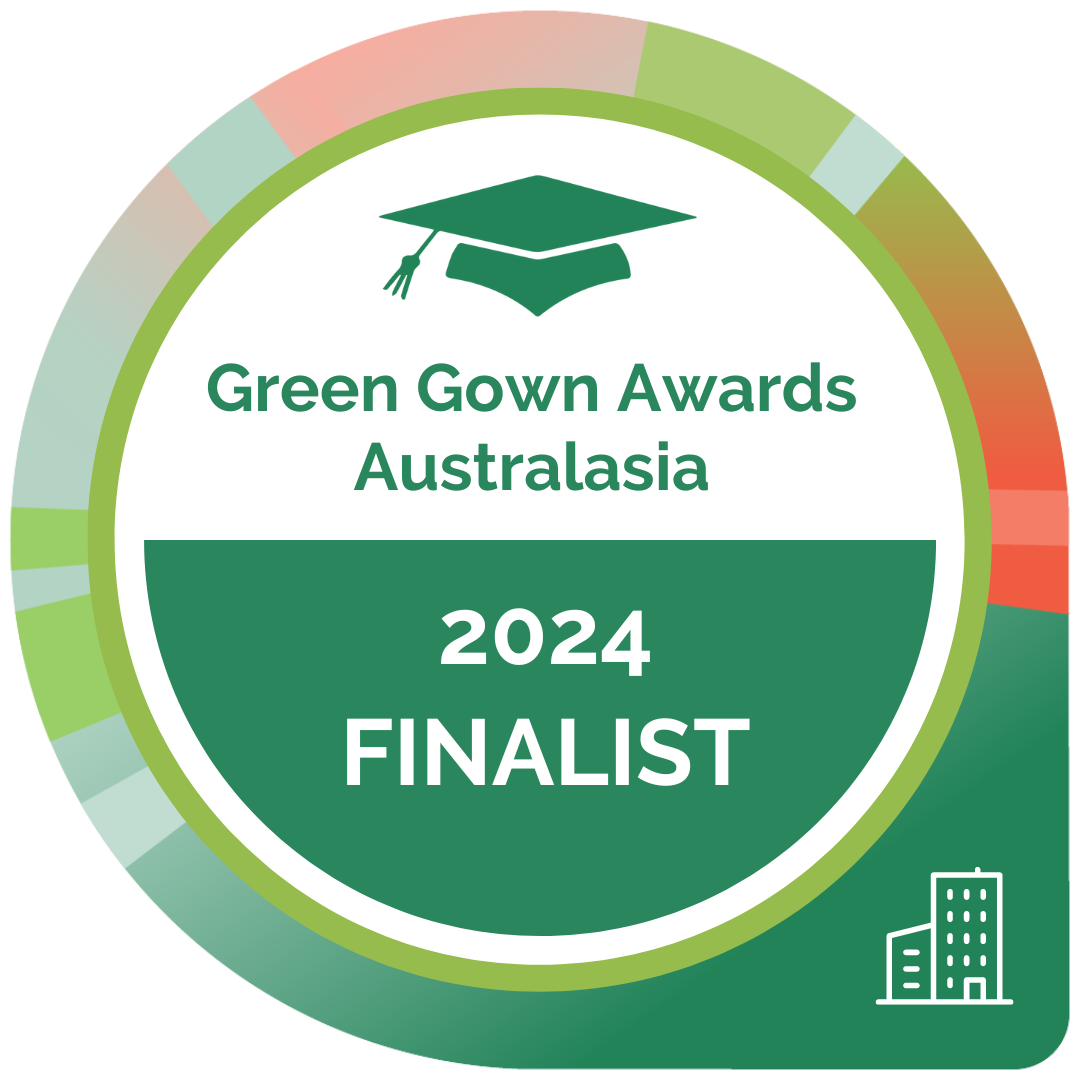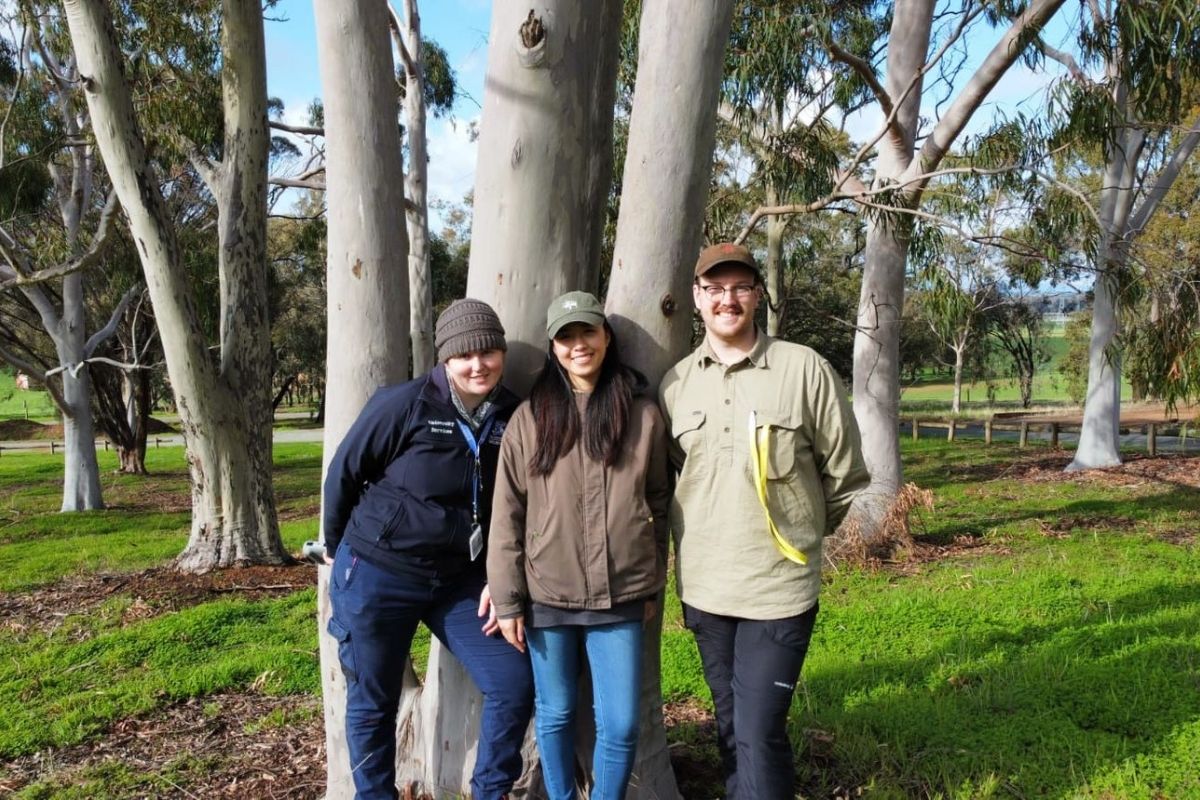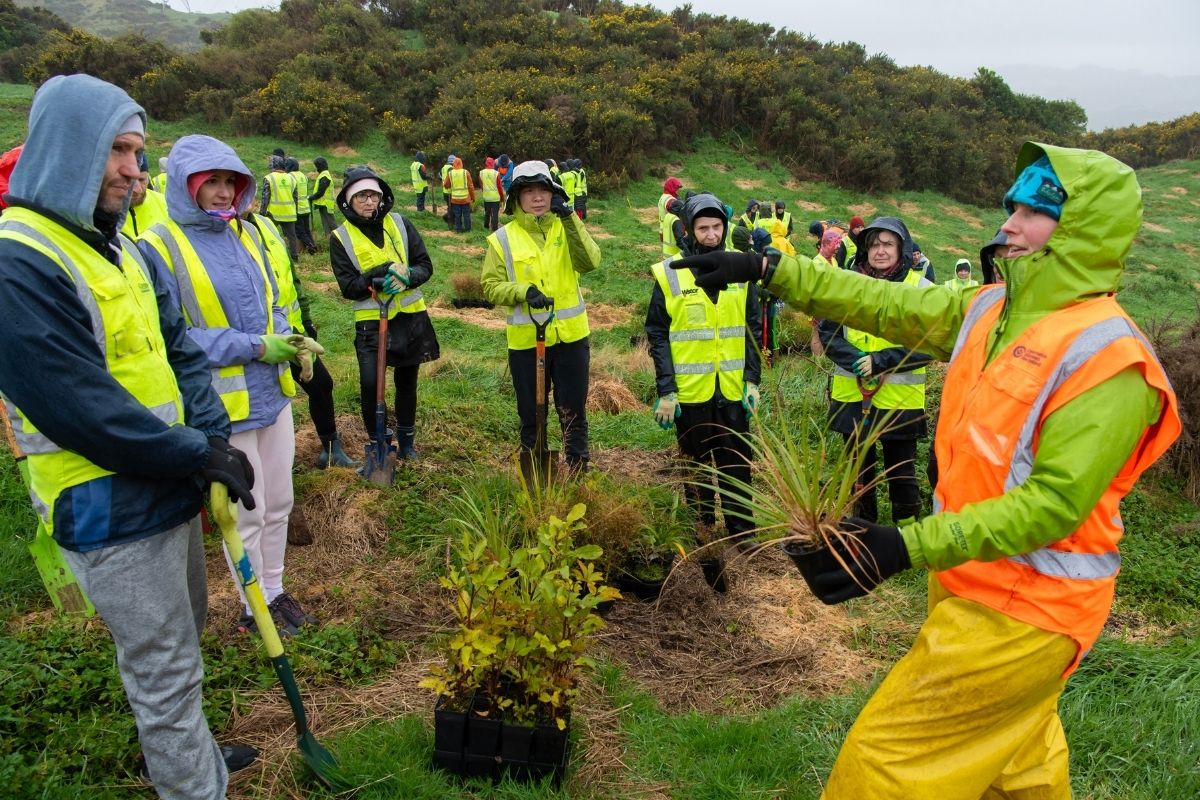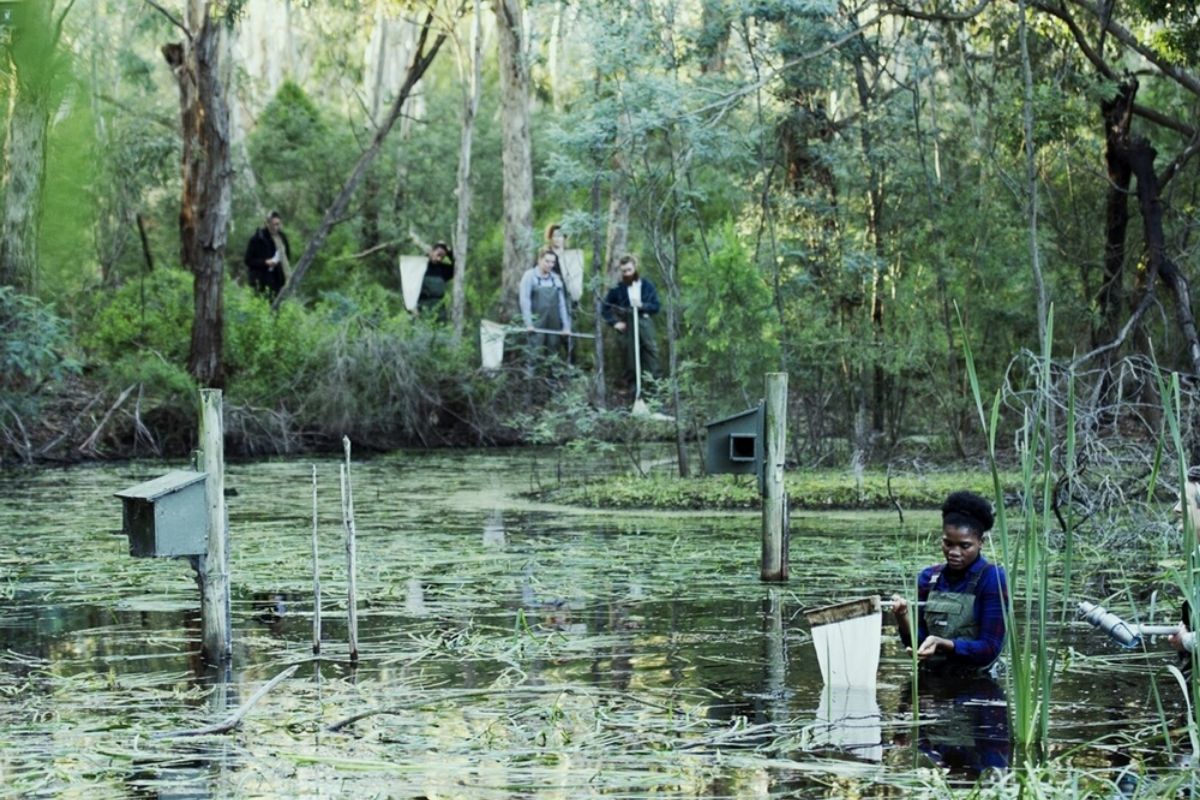Nature Positive category
The University of Canterbury (UC) has launched the “Catching On” project, a comprehensive biodiversity enhancement and predator control initiative. This project, enacted as part of the UC Biodiversity Plan 2022-2024, aims to restore native biodiversity on the university’s Ilam campus and integrate it into the broader ecological corridor of Ōtautahi|Christchurch. The initiative is a collaborative effort involving UC’s Sustainability Office, the student-led Environmental Science Society (EnviroSoc), and Predator Free Riccarton (PFR), focusing on reducing the impact of introduced predators, such as rats and possums, which have severely affected New Zealand’s native flora and fauna.
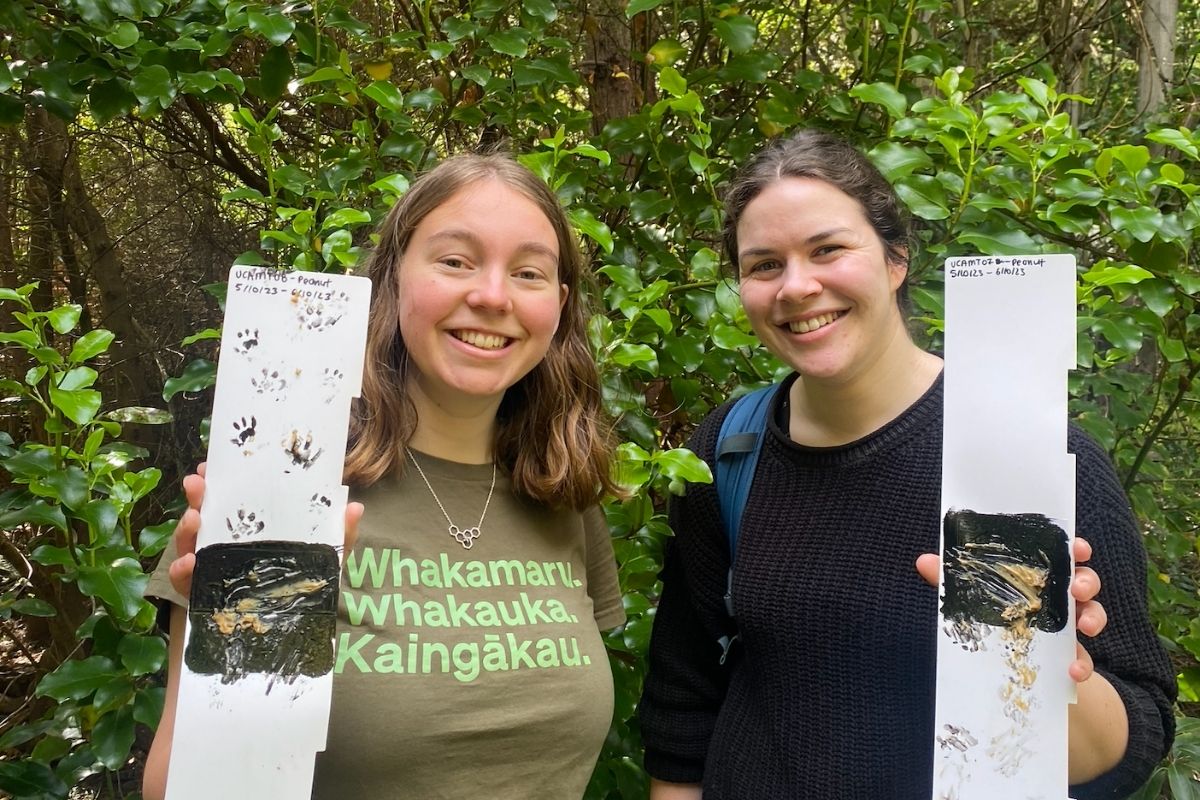
Environmental and Social Benefits
- Biodiversity Restoration: The project is pivotal in restoring native bird populations and enhancing the ecological health of the campus. The removal of predators is expected to increase the successful breeding of native birds and improve the habitat for other native species, including invertebrates and reptiles.
- Community Involvement: The project has engaged over 35 students from EnviroSoc, who volunteer weekly to maintain and monitor trap lines across the campus. This hands-on involvement not only supports environmental conservation but also fosters a strong sense of community and environmental stewardship among participants.
- Educational Integration: The initiative provides students with practical conservation experience, bridging the gap between theoretical knowledge and real-world application. The project also offers leadership opportunities for students, enhancing their skills in project management, teamwork, and environmental science.
Leadership and Engagement
- Collaborative Approach: The project’s success is rooted in its collaborative nature, involving various stakeholders including students, university staff, and the wider community. The partnership with Predator Free Riccarton has been crucial in expanding the project’s reach and effectiveness, integrating the university’s efforts with community-led conservation initiatives.
- Student Leadership: EnviroSoc has played a central role in the project, with students taking on leadership roles as trapping coordinators and team leaders. This involvement has not only driven the project’s success but has also provided valuable leadership experience to the participating students.
- Ongoing Engagement: The project has fostered ongoing engagement through regular meetings, workshops, and collaborative events such as the “Trapping, Tracking and Triumphs” Hui. These activities have strengthened the connections between the university and the local community, promoting broader participation in the predator-free movement.
Significance to the Sector
- Sector Leadership: The “Catching On” project positions UC as a leader in urban ecological restoration, setting a standard for other universities in New Zealand and beyond. The initiative’s integration with the broader Predator Free 2050 national goal highlights its significance as a model for predator control and biodiversity restoration in urban settings.
- Scalable and Replicable Model: The project’s framework, combining student engagement, community collaboration, and practical conservation efforts, offers a scalable and replicable model that can be adopted by other institutions and communities.
- Enhancing Campus as an Ecological Corridor: The project aligns with UC’s strategic vision to transform its campus into a key link within Christchurch’s ecological corridor, contributing to the restoration of native habitats across the city and supporting biodiversity at a regional level.
Wider Societal Impact
- Broader Community Benefits: The project extends beyond the university campus, impacting the surrounding neighbourhoods and connecting with local conservation efforts. The collaborative work with PFR and local schools amplifies the project’s reach, contributing to a predator-free environment across a larger urban area.
- Educational and Career Opportunities: Students involved in the project gain practical skills that enhance their employability in the environmental sector. The project also creates opportunities for internships and research, providing a pathway for students to pursue careers in conservation and environmental management.
- National and Global Relevance: The project supports New Zealand’s national Predator Free 2050 initiative and serves as an example of successful urban ecological restoration that can be applied globally. Its focus on student-led conservation and community collaboration provides a template for similar projects worldwide.
The “Catching On” initiative at the University of Canterbury demonstrates a powerful approach to biodiversity restoration and predator control, integrating academic, community, and environmental goals. Through innovative collaboration, strong leadership, and a commitment to sustainability, the project not only enhances the local environment but also sets a benchmark for ecological restoration in urban university settings. This initiative not only supports the ecological health of the campus but also contributes to broader national and global conservation efforts, making it a model for other institutions to follow.
Top 3 learnings
Supported by

Category finalists
Highly Commended/Nature Positive
Highly Commended/Nature Positive
Nature Positive
Nature Positive
Nature Positive/Winners
Nature Positive/Winners
Past winners
Benefitting Society/Winners
Benefitting Society/Winners
Diversity, Equity & Inclusion in Sustainability/Winners
Diversity, Equity & Inclusion in Sustainability/Winners
Climate Action/Winners
Climate Action/Winners
Sustainability Institution of the Year/Winners
Sustainability Institution of the Year/Winners
Creating Impact/Winners
Creating Impact/Winners
Creating Impact/Winners
Creating Impact/Winners
Top 3 learnings
Nature Positive category
The University of Canterbury (UC) has launched the “Catching On” project, a comprehensive biodiversity enhancement and predator control initiative. This project, enacted as part of the UC Biodiversity Plan 2022-2024, aims to restore native biodiversity on the university’s Ilam campus and integrate it into the broader ecological corridor of Ōtautahi|Christchurch. The initiative is a collaborative effort involving UC’s Sustainability Office, the student-led Environmental Science Society (EnviroSoc), and Predator Free Riccarton (PFR), focusing on reducing the impact of introduced predators, such as rats and possums, which have severely affected New Zealand’s native flora and fauna.

Environmental and Social Benefits
- Biodiversity Restoration: The project is pivotal in restoring native bird populations and enhancing the ecological health of the campus. The removal of predators is expected to increase the successful breeding of native birds and improve the habitat for other native species, including invertebrates and reptiles.
- Community Involvement: The project has engaged over 35 students from EnviroSoc, who volunteer weekly to maintain and monitor trap lines across the campus. This hands-on involvement not only supports environmental conservation but also fosters a strong sense of community and environmental stewardship among participants.
- Educational Integration: The initiative provides students with practical conservation experience, bridging the gap between theoretical knowledge and real-world application. The project also offers leadership opportunities for students, enhancing their skills in project management, teamwork, and environmental science.
Leadership and Engagement
- Collaborative Approach: The project’s success is rooted in its collaborative nature, involving various stakeholders including students, university staff, and the wider community. The partnership with Predator Free Riccarton has been crucial in expanding the project’s reach and effectiveness, integrating the university’s efforts with community-led conservation initiatives.
- Student Leadership: EnviroSoc has played a central role in the project, with students taking on leadership roles as trapping coordinators and team leaders. This involvement has not only driven the project’s success but has also provided valuable leadership experience to the participating students.
- Ongoing Engagement: The project has fostered ongoing engagement through regular meetings, workshops, and collaborative events such as the “Trapping, Tracking and Triumphs” Hui. These activities have strengthened the connections between the university and the local community, promoting broader participation in the predator-free movement.
Significance to the Sector
- Sector Leadership: The “Catching On” project positions UC as a leader in urban ecological restoration, setting a standard for other universities in New Zealand and beyond. The initiative’s integration with the broader Predator Free 2050 national goal highlights its significance as a model for predator control and biodiversity restoration in urban settings.
- Scalable and Replicable Model: The project’s framework, combining student engagement, community collaboration, and practical conservation efforts, offers a scalable and replicable model that can be adopted by other institutions and communities.
- Enhancing Campus as an Ecological Corridor: The project aligns with UC’s strategic vision to transform its campus into a key link within Christchurch’s ecological corridor, contributing to the restoration of native habitats across the city and supporting biodiversity at a regional level.
Wider Societal Impact
- Broader Community Benefits: The project extends beyond the university campus, impacting the surrounding neighbourhoods and connecting with local conservation efforts. The collaborative work with PFR and local schools amplifies the project’s reach, contributing to a predator-free environment across a larger urban area.
- Educational and Career Opportunities: Students involved in the project gain practical skills that enhance their employability in the environmental sector. The project also creates opportunities for internships and research, providing a pathway for students to pursue careers in conservation and environmental management.
- National and Global Relevance: The project supports New Zealand’s national Predator Free 2050 initiative and serves as an example of successful urban ecological restoration that can be applied globally. Its focus on student-led conservation and community collaboration provides a template for similar projects worldwide.
The “Catching On” initiative at the University of Canterbury demonstrates a powerful approach to biodiversity restoration and predator control, integrating academic, community, and environmental goals. Through innovative collaboration, strong leadership, and a commitment to sustainability, the project not only enhances the local environment but also sets a benchmark for ecological restoration in urban university settings. This initiative not only supports the ecological health of the campus but also contributes to broader national and global conservation efforts, making it a model for other institutions to follow.
Supported by

Related finalists
Highly Commended/Nature Positive
Highly Commended/Nature Positive
Nature Positive
Nature Positive
Nature Positive/Winners
Nature Positive/Winners
Other finalists
Climate Action

Driving Towards Tomorrow’s Campus with Vehicle-to-Grid EV Technology
As part of Flinders University’s drive to innovate and become a leader in climate action, the University launched its Vehicle-to-Grid (V2G) initiative. This involved installing and maintaining 20x V2G and smart chargers for its growing electric vehicle fleet. Leveraging 100% renewable energy generated by ENGIE’s Willogoleche Wind Farm and Flinders University’s solar power systems, this enables the storage of renewable energy in EV batteries to be discharged on campus during peak demand periods. Hence, allows for these EV fleets to operate as a Virtual Power Plant (VPP) to deliver peak demand management and optimization of behind-the-meter generation.
Overall, this initiative demonstrates the reliability and scalability of bi-directional and uni-directional smart-charging systems for EVs in reducing GHG emissions while facilitating teaching, research, and innovation opportunities. Moreover, it exemplifies a sustainable and innovative solution to scale energy storage technology and increase renewables.
Sustainability Champion – Staff/Winners

Brandan Espe
Environmental Officer / Acting Grounds Supervisor
Brandan has brought over 50 federally listed Endangered species of plant into the James Cook University living collection, many of which have never been cultivated and are found in no other collection in the world.
Of these, over half have been sustainably wild collected, inclusive of field and clone data, so they can be used for ongoing conservation, research and teaching, the remaining being sourced from private and partner organisations through favours of service or trades.
He personally funded the project from 2019-2022, until funding was awarded for the program due to its success, with the program now being engrained into the Universities landscapes for ongoing management should he leave JCU, creating a threatened species legacy collection.
The program has now expanded beyond this, with an additional 48 species now funded for further addition, some of which are only known from less than 5 sightings in history.
Student Engagement

Sustainability Leaders creating real impact!
La Trobe created a unique Sustainability Leaders volunteering program to increase engagement with students on campus and empower them to act against waste and promote sustainability. It included the following initiatives:
- Promoting the reusable crockery implementation,
- Increasing knowledge action of other students on campus to diversion comingled recycling and organic waste from landfill.
- Focus on waste audits and data,
- Improved signage through new waste posters for students living on campus.
- Collaboration with Cirka (our cleaning and waste partner) to create a waste wall and;
- Learning all things sustainability (net zero, biodiversity, waste, reusables, engagement)
These initiatives yielded significant results and with a reduction in waste contamination by almost 40% at the residential buildings and engagement with over 80 groups of people for the Reusable Revolution.
Creating Impact

Where knowledge meets habits: Empowering students for a sustainable tomorrow
Our online Sustainability Challenges offer participants an engaging, self-paced learning experience centered around a specific United Nations Sustainable Development Goal (UNSDG). Requiring minimal resourcing and at zero-cost to participants, we’ve created replicable, compact, scalable, and impactful learning opportunities that result in real impact.
The Challenges follow a structured process that moves participants from knowledge gain to simple action to celebration, to establish small but mighty habits relating to waste and carbon emissions. This approach recognises that knowledge alone is often insufficient to drive behaviour change, and that ease of action and celebration are crucial components in creating sustainable habits.
Sustainability Champion – Staff/Winners

Catherine (CeeJay) Donovan
Veterinary nurse – Anaesthesia
From establishing the Massey Vet School Green Team to leading impactful initiatives, my commitment to environmental sustainability has been making waves. With the help of my team, I have accomplished numerous small, yet meaningful actions, including integrating a sustainability lecture for final year vet students and implementing battery recycling alongside rechargeable battery use. Our larger projects encompass the introduction of green waste and soft plastics recycling bins, an energy audit resulting in power-saving measures, and playing a part in a successful rubbish audit. I spearheaded the ‘6 in 6’ campaign, empowering individuals with six simple steps for workplace sustainability. Through the SustainaVet social media pages I help to educate and inspire peers nationwide. As the Massey School of Veterinary Science sustainability champion, I had the privilege of speaking at the annual veterinary conference on sustainability in clinical practice. Currently I’m conducting pioneering research on responsible cat waste disposal. Together, we’re forging a greener future, one initiative at a time.
Sustainability Champion – Student

Louis Walmsley
SDG Coordinator Monash Association of Sustainability, Office Bearer Monash Student Association’s Environmental and Social Justice Department, Masters of Environment and Sustainability Student
Louis is an exceptional student sustainability leader at Monash University. His passion and dedication to sustainability have made a significant impact on the community. Louis’s values revolve around sustainability, which is evident upon meeting him. He actively participates in various sustainability groups, demonstrating his commitment to creating a more environmentally conscious society.
One of Louis’s notable involvements is with Precious Plastic Monash, where he organizes remarkable events and fosters collaboration among like-minded individuals, student groups, and staff. His contributions to the Monash Association of Sustainability have allowed him to conduct valuable research on plastic usage and climate action, resulting in positive changes within the university.
Through his work with the Monash Student Association, Louis has engaged hundreds of students in fun and interactive sustainability initiatives. He took the initiative to organize a sustainability food fair, which was one of the largest sustainability-related events held at Monash post-COVID. This accomplishment is a true testament to Louis’s hard work and creativity.
Louis is an outstanding student leader whose efforts in sustainability have had a lasting impact on Monash University and its community. His inspiring nature resonates with everyone who knows him.

